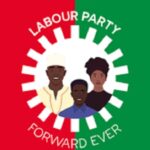
Tinubu in his inaugural address at Eagle Square also unveiled a series of steps he would take to position the country on the path of economic development, stability and prosperity.
The PUNCH reports that shortly after his inauguration, the President met with envoys from the United Kingdom, United States, Saudi Arabia, Japan, Brazil, South Korea, Israel, Cape Verde, Somalia and Nicaragua at the Presidential Villa, Abuja
Here are seven key takeaways from Tinubu’s inaugural speech
1. Security
The new president said reforming Nigeria’s security architecture remains his top priority. To address this issue, he said he would improve the security doctrine and architecture, invest more in security personnel, and provide better training, equipment, pay, and firepower.
2. Subsidy permanently removed.
Tinubu stated in his inaugural speech that fuel subsidy has been permanently removed. He said the decision to remove it became imperative because the subsidy regime increasingly favored the rich more than the poor and the costs of the subsidy are too high.
“The funds will be used for better investment in public infrastructure, education, healthcare, and job creation,” he said.
3. One million jobs
The new president said that his administration would create meaningful opportunities for youths by fulfilling their campaign promise of generating one million new jobs in the digital economy.
He promised to work with the National Assembly to create an omnibus Jobs and Prosperity bill that will give them the policy space to embark on labor-intensive infrastructural improvements, encourage light industry, and provide better social services for the poor, elderly, and vulnerable.
4. Local manufacturing
The president said that his administration would aim for higher GDP growth and significantly reduce unemployment.
He said he plans to achieve this by implementing budgetary reform to stimulate the economy without causing inflation, utilizing fiscal measures to promote local manufacturing and reduce import dependency, making electricity more accessible and affordable to businesses and homes, and improving power generation, transmission, and distribution networks.
He promised to also also encourage states to develop local sources of electricity. “The government will review all complaints from investors about multiple taxation and anti-investment inhibitions to ensure that investors and foreign businesses can repatriate their dividends and profits home,” Tinubu said.
5. Currency swap policy review
Tinubu said the currency swap policy and Nigeria’s monetary policy needs to be thoroughly reviewed.
“The Central Bank should work towards a unified exchange rate to direct funds towards meaningful investments in plants, equipment, and jobs that power the real economy. Interest rates should be lowered to increase investment and consumer purchasing in ways that sustain the economy at a higher level.
“The currency swap policy was too harshly applied by the CBN given the number of unbanked Nigerians and will be reviewed. Meanwhile, Tinubu’s administration will treat both currencies as legal tender.”
6. Consultation, dialogue with Nigerians
The president said that his administration would govern on behalf of the people but will never rule over them.
The former Lagos State governor assured Nigerians that he will consult and dialogue with everyone but never dictate. “The administration is here to mend and heal the nation, not tear it apart,” he said.
7. Fairly won election
The president said the February 25, 2023, presidential election was hard-fought but fairly won and that his victory does not make him more Nigerian than his opponents.
He promised to treat his opponents as fellow compatriots and recognizes that they represent important constituencies and concerns. He said those who have concerns have the right to seek legal redress, and the rule of law must be upheld.
“Nigeria’s founding fathers worked hard to make Nigeria an independent nation, and we must not let their work go to waste. Each and every Nigerian is indispensable regardless of their creed, ethnicity, or place of birth,” he said.














